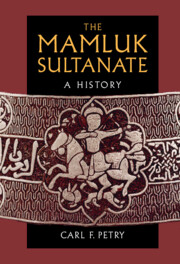Book contents
- The Mamluk Sultanate
- The Mamluk Sultanate
- Copyright page
- Dedication
- Contents
- Figures
- Maps
- Maps
- Introduction
- 1 Synopsis of Events
- 2 Ethos of the “Slave-Soldiers” Regime
- 3 The Mamluk Sultanate from a Global Perspective
- 4 Vocational Classes
- 5 The Political Economy
- 6 Cultural Legacy
- 7 The Rural Environment, Gendered Issues, Minority Communities, Sufi Practice
- Reflections
- Notes
- Bibliography
- Index
5 - The Political Economy
Contexts of Innovation
Published online by Cambridge University Press: 05 May 2022
- The Mamluk Sultanate
- The Mamluk Sultanate
- Copyright page
- Dedication
- Contents
- Figures
- Maps
- Maps
- Introduction
- 1 Synopsis of Events
- 2 Ethos of the “Slave-Soldiers” Regime
- 3 The Mamluk Sultanate from a Global Perspective
- 4 Vocational Classes
- 5 The Political Economy
- 6 Cultural Legacy
- 7 The Rural Environment, Gendered Issues, Minority Communities, Sufi Practice
- Reflections
- Notes
- Bibliography
- Index
Summary
The Sultanate's political economy evolved continuously. Since the regime presided over an imperial union of territories that differed in their topography and ecology, the process of evolution in these regions exhibited contrasting patterns of change. Agriculture in the Nile Valley manifested procedures unlike crop raising or animal husbandry along the Syrian coast, upland valleys or semi-arid outback of the Syrian Sahel. Commodities imported from South or East Asia transited from ports in Yemen or Western Arabia through entrepôts on the Upper Nile to Alexandria, where they were transferred to European carriers that conveyed them to destinations on the Mediterranean north shore and beyond. Agents in each of these stages answered to differing sponsors, aligned their conduct of business with local politics and extracted revenues at levels fluctuating within the mechanisms that governed inter-regional trade throughout this period. Domestic commerce in both urban and rural settings dealt in the exchange of commodities produced locally in a workshop milieu. Control over (and profiteering from) marketing of lucrative staples that funneled revenues to the regime, such as spices, textiles or sugar, became a principal objective of governmental authority, with results that enhanced the Sultanate’s fisc in the short term but compromised its competitive position in the longue durée. These issues are considered from the perspective of agriculture or animal husbandry in Egypt and Syria, the varying extent of control exercised over them by the bureaucracy, interregional trade and its manipulation by the Sultanate over time, the domestic commercial economy, and finally the overt expropriation or clandestine extraction on which the regime relied as licit sources of revenuediminished in the Sultanate’s final century.
Keywords
- Type
- Chapter
- Information
- The Mamluk SultanateA History, pp. 154 - 202Publisher: Cambridge University PressPrint publication year: 2022

